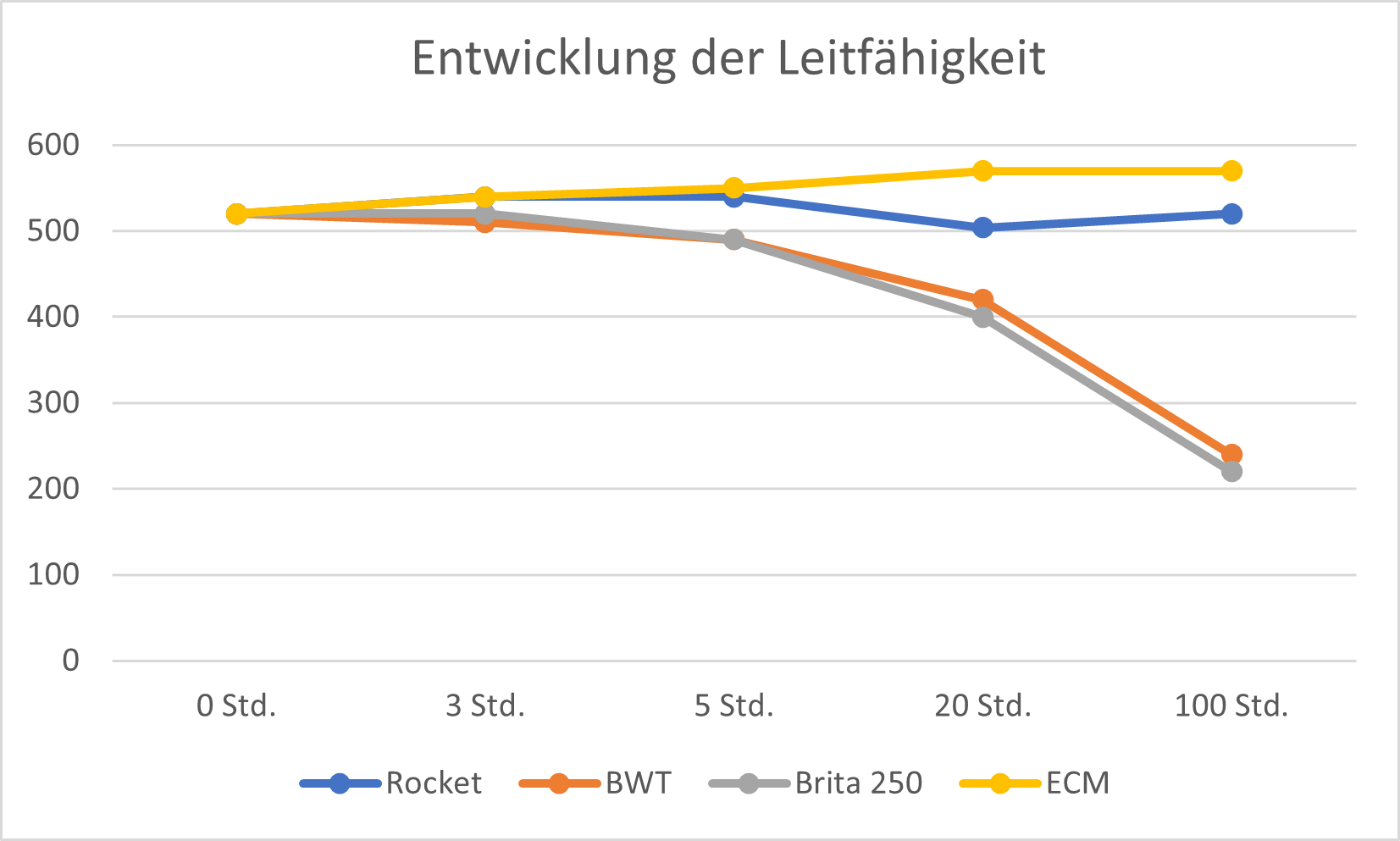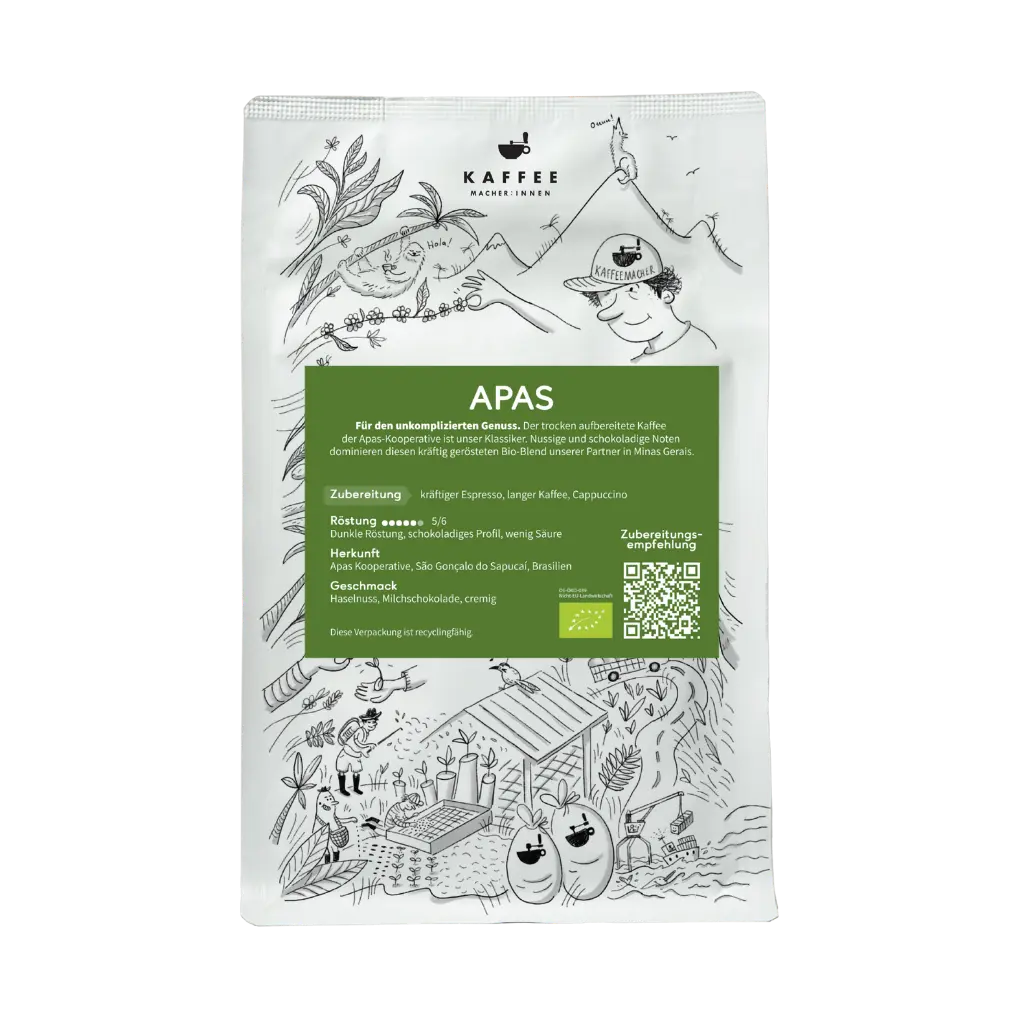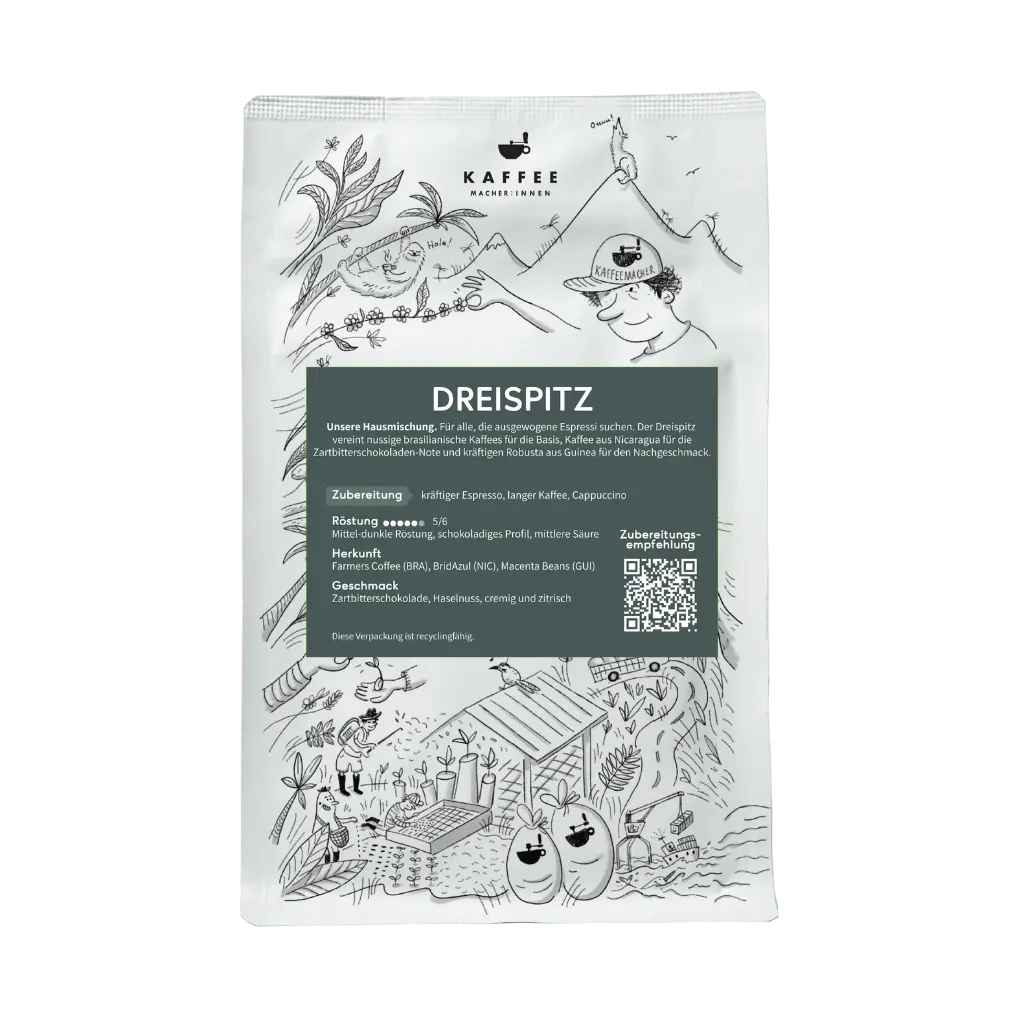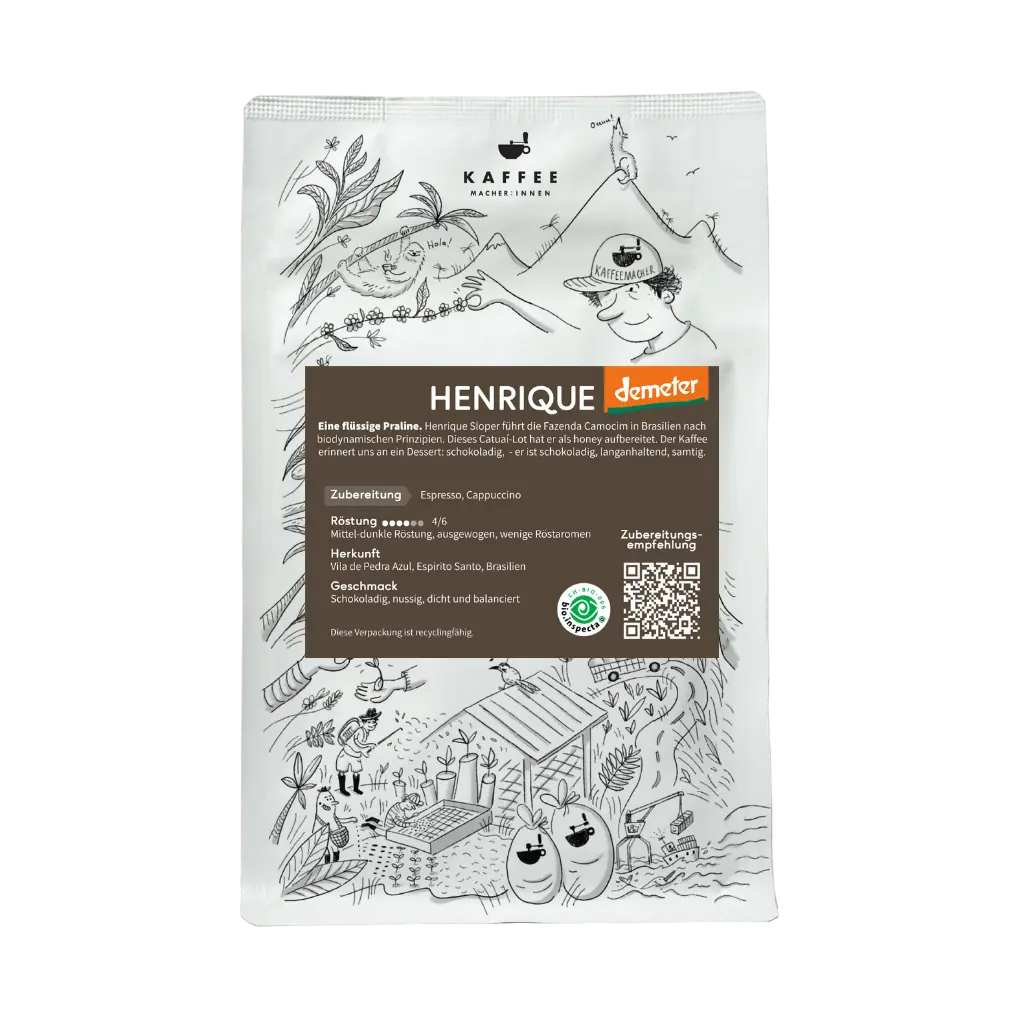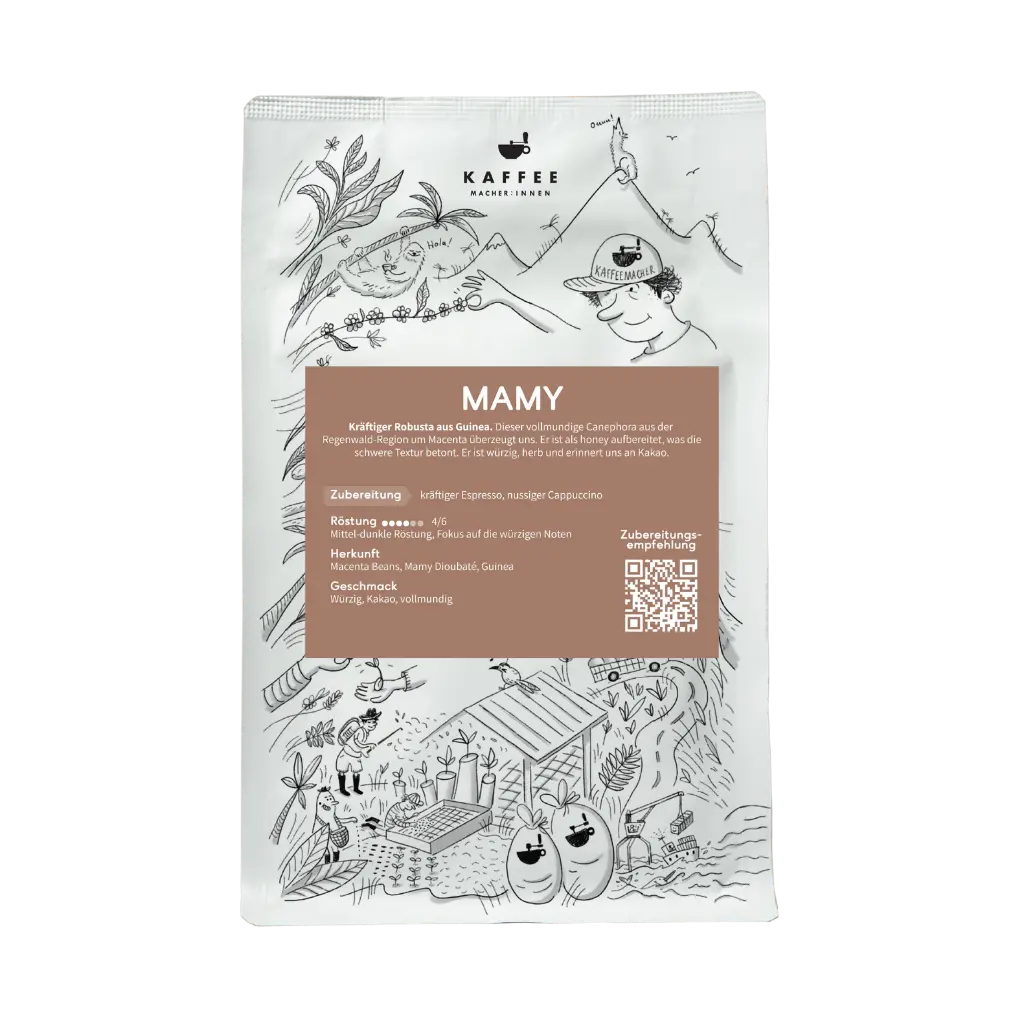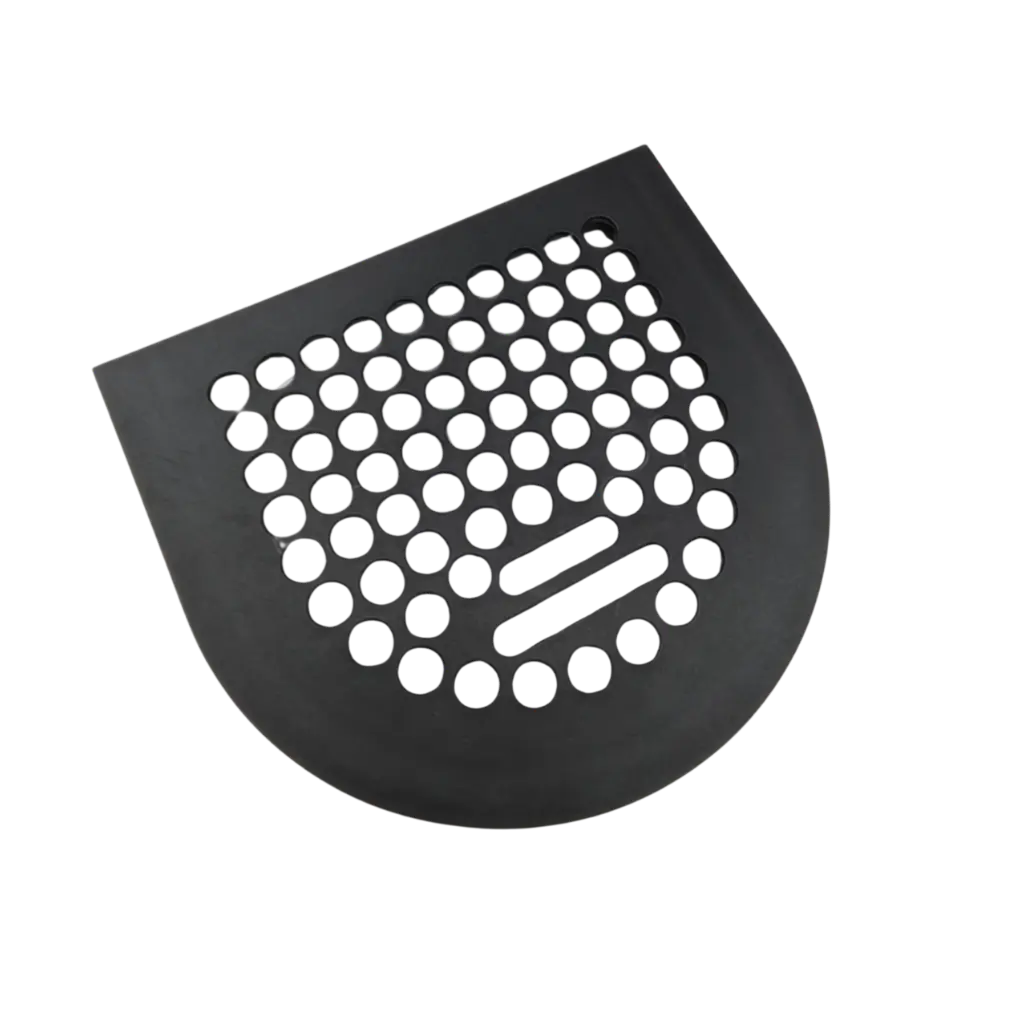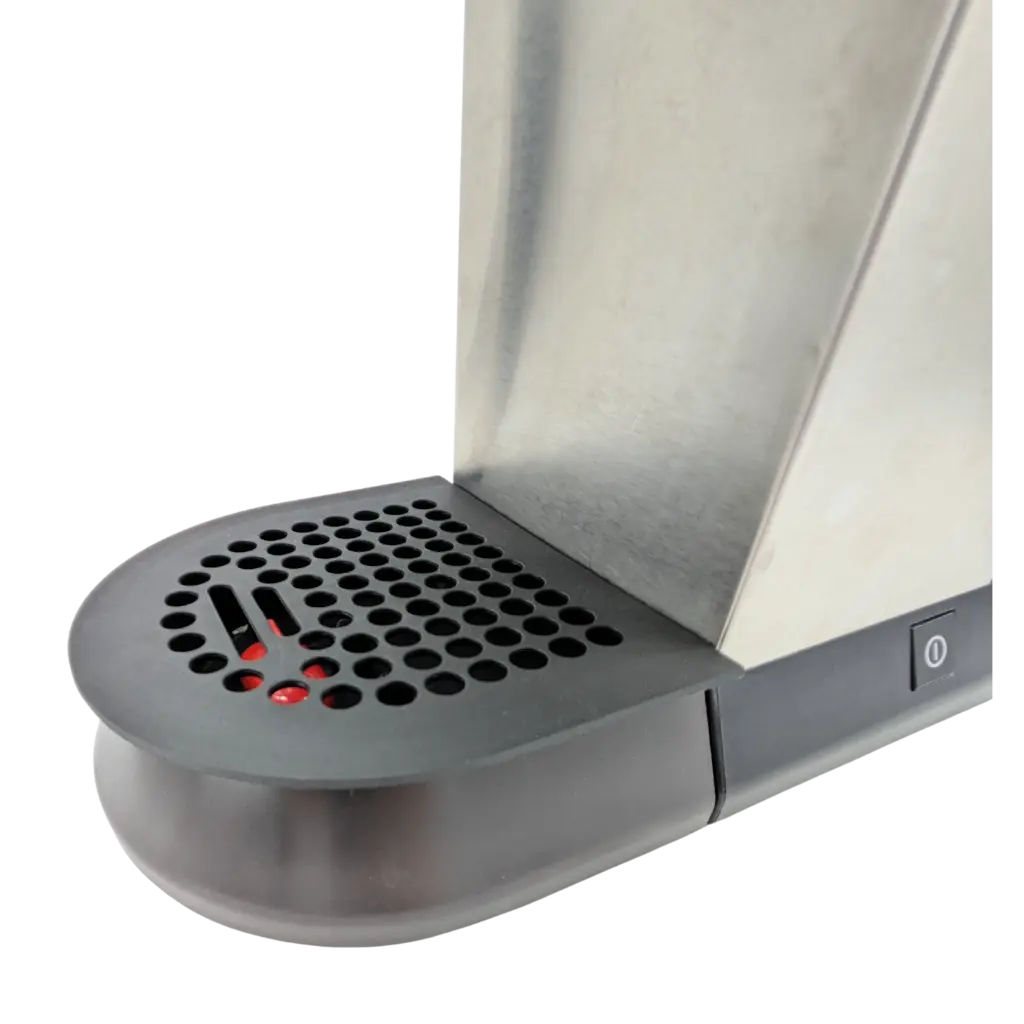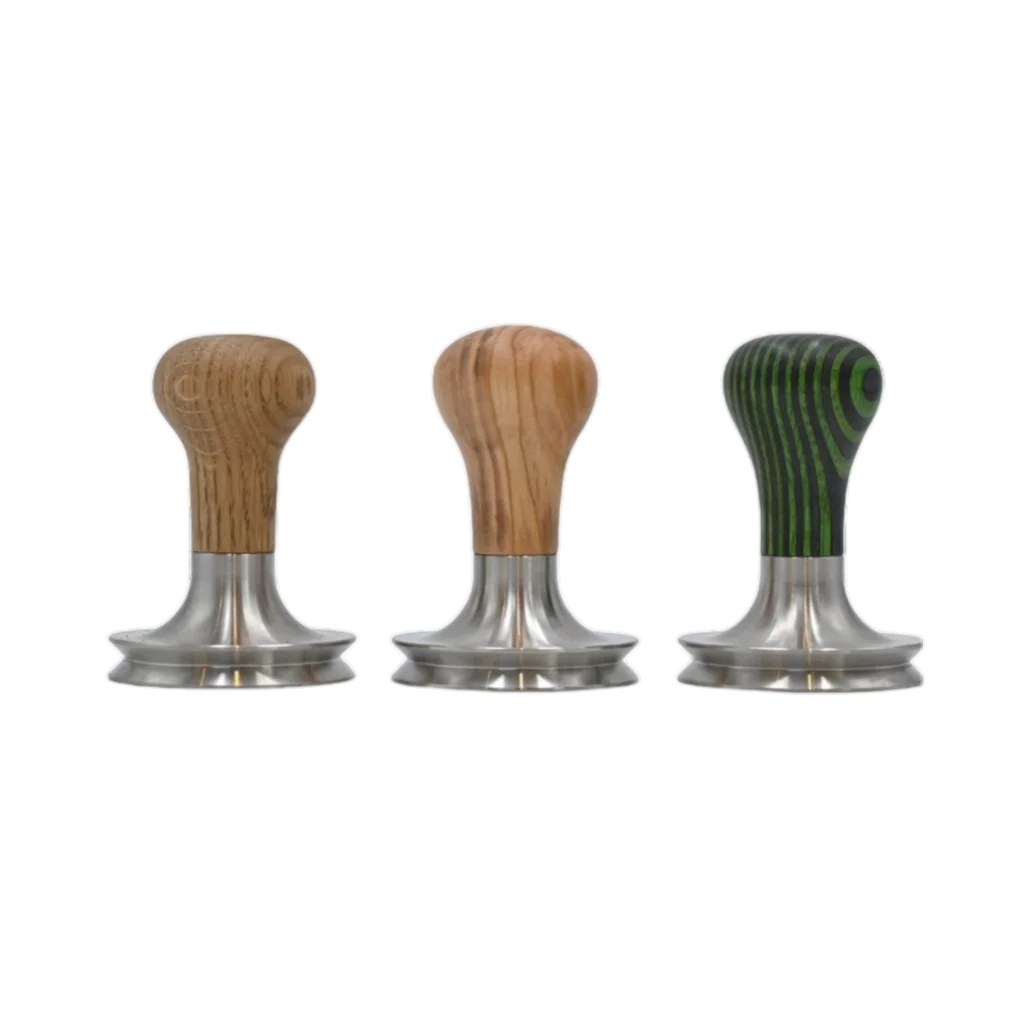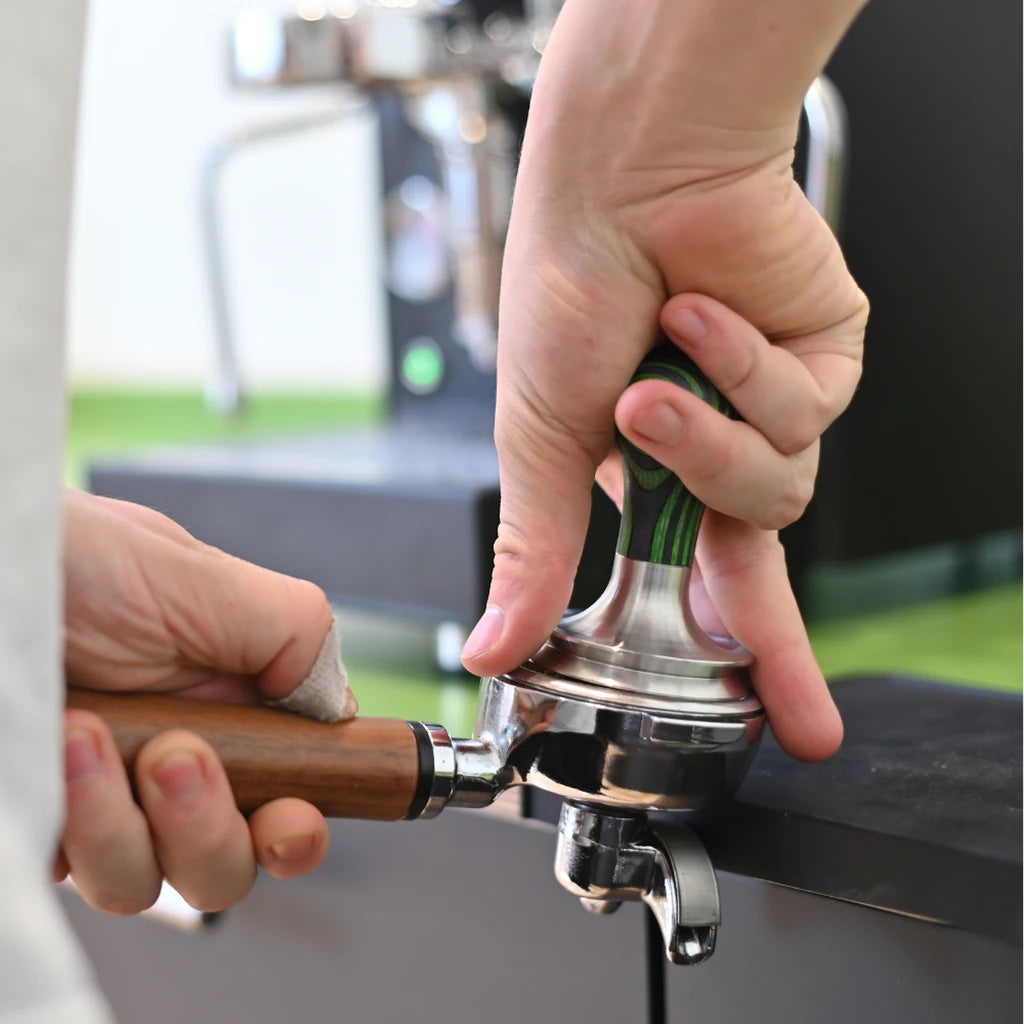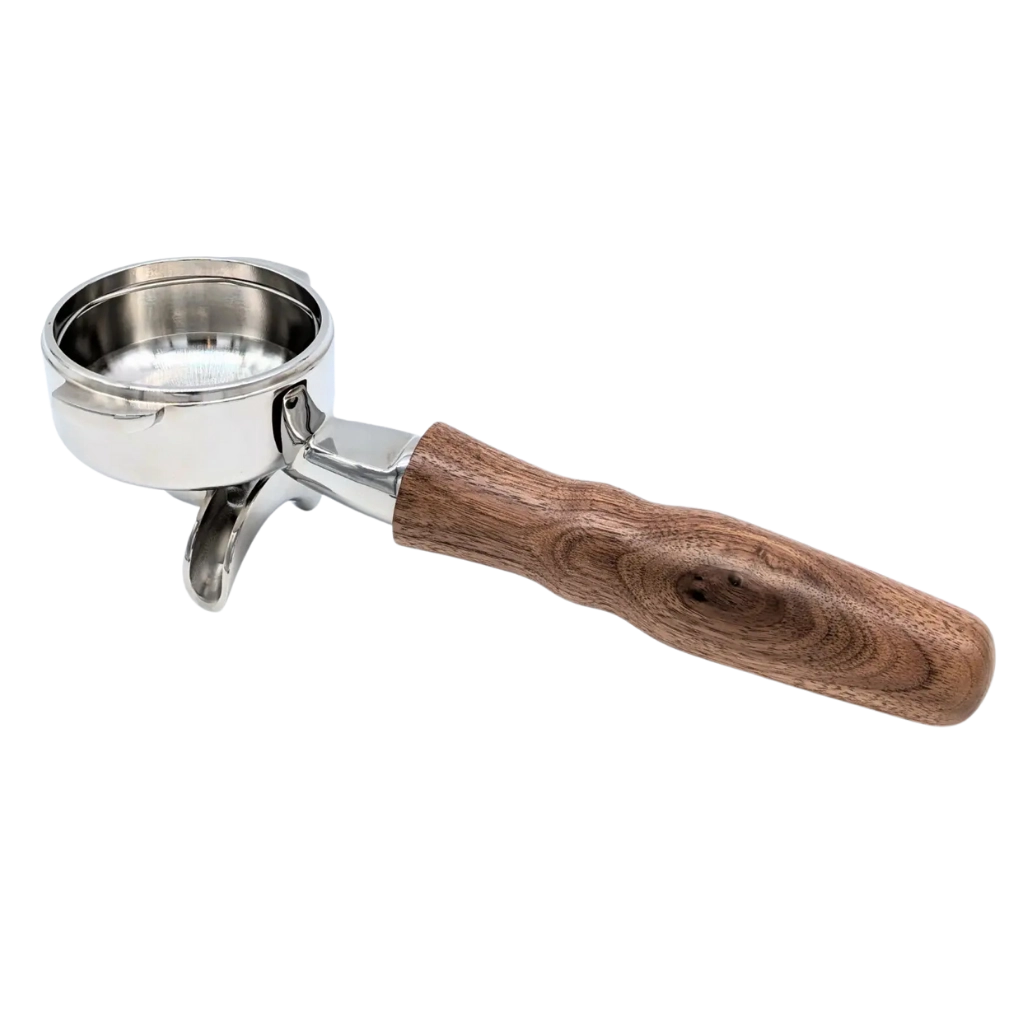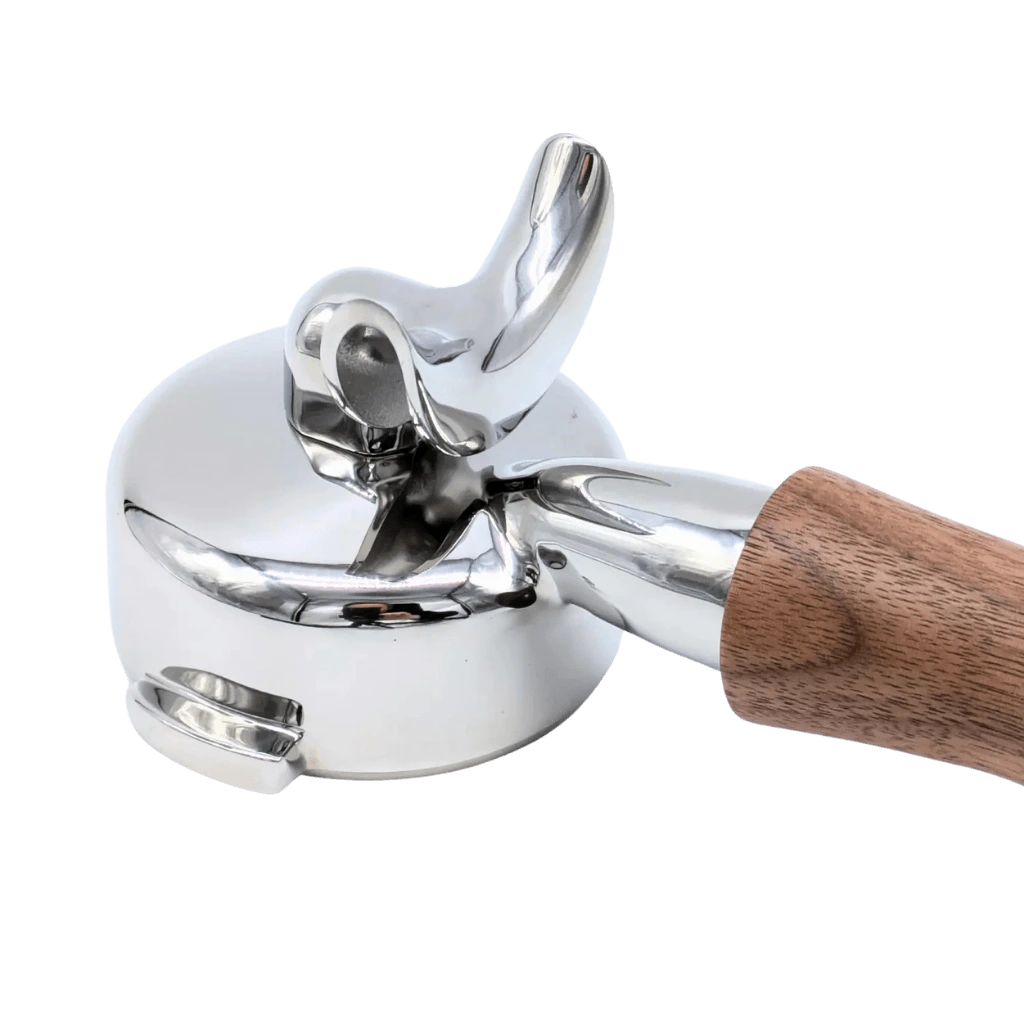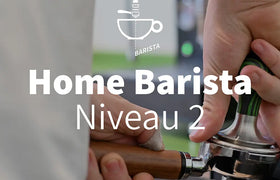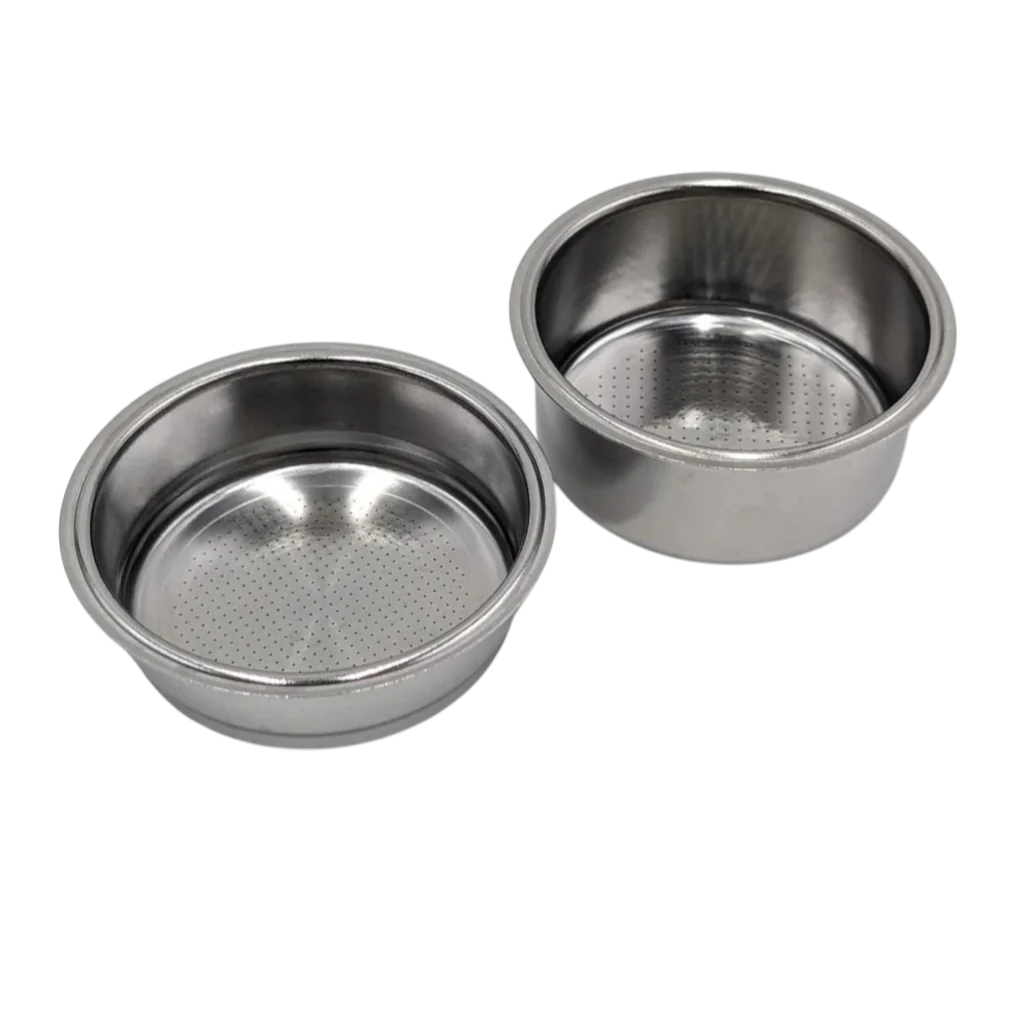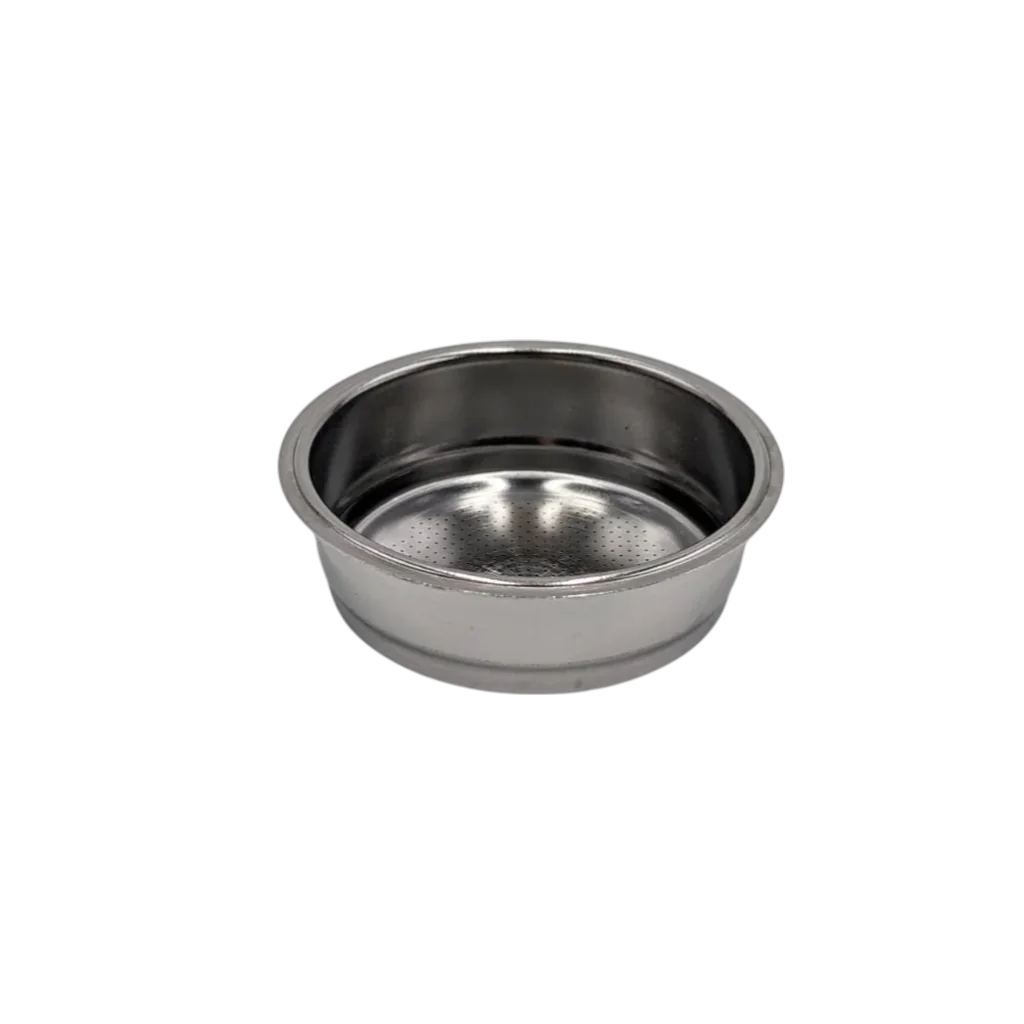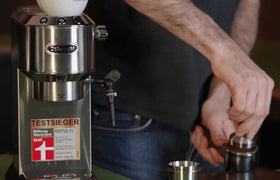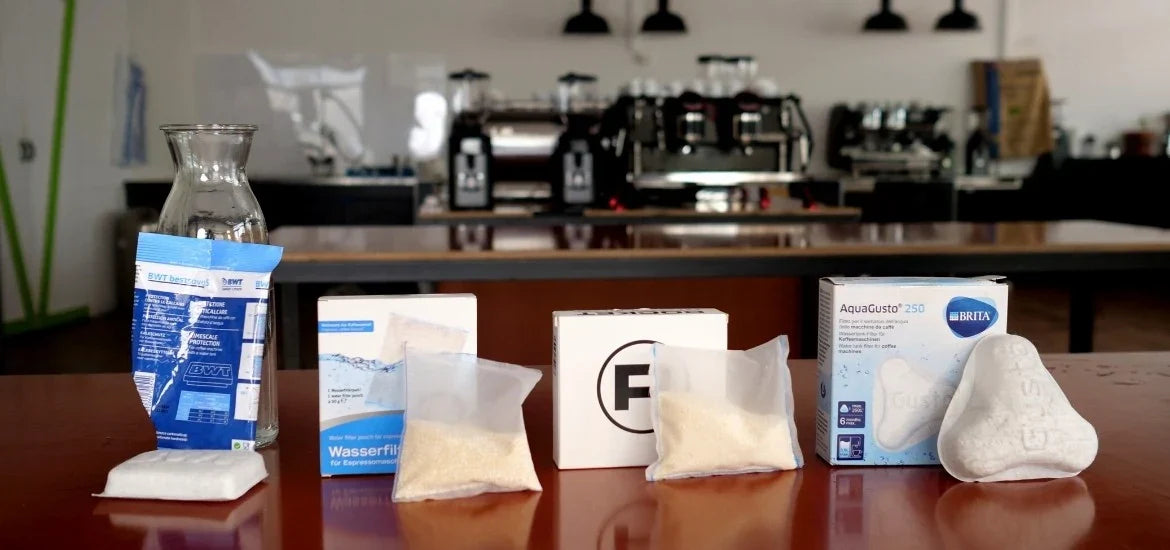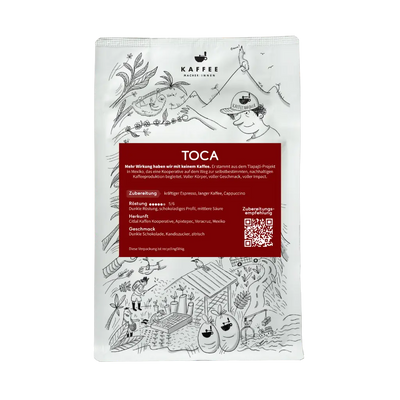Water filter pads have a single purpose: to filter hard water. They are designed to reduce the risk of limescale buildup in espresso or coffee machines and also improve the water's taste. We tested four water filter pads, and the conclusion is sobering: all four fail to achieve these two goals, or only inadequately, when used according to the retailer's instructions.
We tested the water filter pad from ECM, Rocket O.SCA.R 90, BRITA Aqua Gusto 250 and BWT Bestsave S.
Good water for making coffee
In many places, domestic tap water is too hard to brew good-tasting coffee. At least as problematic is the fact that even medium-hard water can cause limescale buildup. We've explained what constitutes good water for brewing coffee in a detailed article and video. Here are the basic facts again:
Perfect water for filter coffee:
Total hardness: 2 – 3 °dH
Alkalinity: 1 – 2 °dH
Perfect water for espresso:
Total hardness: 3 – 6 °dH
Alkalinity: 2 – 4 °dH
How to measure these values at home, what they mean, and how to change them is also explained in the linked article. https://kaffeemacher.ch/kaffeewasser/
We have often been asked whether the water can also be reached with water filter pads or water filter pillows.
The use of water filter pads
Water filter pads are rinsed according to the manufacturer's instructions and then placed in the water tank of the espresso machine or fully automatic coffee machine. There, the water filter pads soften or decarbonize the water over time.
Depending on the manufacturer, different information is provided.
For example, ECM recommends a soaking time of 15 hours for a water hardness of 15. BWT recommends overnight use (8–10 hours according to the application brochure). None of the four manufacturers take the initial water hardness into account. It is only mentioned for the durability of the pad (the maximum number of liters that can be filtered over time).
In any case, the pods need time to develop their filtering effect. This is where we first stumble. When do we usually refill the water? When the espresso machine complains about the low water level or the fully automatic coffee machine starts beeping annoyingly.
So we add more water and then brew the coffee. No one waits overnight or even three or four days for the next brew, which is what our measurements suggest.

How effectively do water filter pads filter?
We placed one filter pad from each manufacturer into a water tank filled with 2 liters of water. After 3 hours, 5 hours, 20 hours, and 100 hours, we measured total hardness, alkalinity, and conductivity.
The total hardness developed as follows.

Total hardness development water filter pad
After 20 hours, all four pads were still not at the desired target range for espresso, or rather, with an initial hardness of 16 GH °dH, they were still far from it. After 100 hours, all water filter pads had sufficiently reduced the total hardness, but not the alkalinity.

While the BWT and BRITA water filter pads have sufficiently reduced alkalinity after 100 hours, this value remains consistently too high for the ECM and Rocket water filter pads. While these two pads provide water softening, they do not replace the bicarbonate to the same extent.
While this protects the water from limescale buildup, it remains problematic sensorially. High alkalinity significantly weakens any acidity in the coffee. This is necessary for balanced coffee and to avoid a bland taste.
Both manufacturers do not communicate this on their packaging.
NOTE: As long as the water filter pad is in contact with the water, the water is still being decarbonized or softened. An accurate determination of water hardness is only possible if you allow fresh water to remain in contact with the pad for a certain period of time. As soon as you add more water, as is usually the case with the water tank, the readings become inaccurate again.
Michel Aeschbacher
Water filter pads as a scam
The slow filtering action of the pods requires targeted use if they are to be effective at all. As described by the manufacturers in their instructions, they are not effective and will endanger your espresso machine, not to mention making the coffee taste poor.
In our opinion, the water filters from Rocket and ECM are not suitable for brewing good coffee. While they protect your machine if they are left in water for a long time, they do not reduce the alkalinity.
BRITA and BWT water filter pads are theoretically usable, but they must be used differently than described by the manufacturers. The best way to do this is to place a separate water jug in the refrigerator with a water filter pad in it, leaving it in contact for the appropriate length of time, depending on the initial water hardness. We've described how to determine your initial water hardness here.
Plug-in filters and water filter cartridges that are inserted directly into the water container perform better. The flow-through suction significantly improves filter performance. We've written a test article on this topic.
---
Backup info
Alkalinity and total hardness were measured using BWT titration drop tests. Two liters of water were used for each test and kept at room temperature in a water tank with a water filter pad. Conductivity was also measured. The initial total hardness of our water is: 16 °dH total hardness, 13 °dH alkalinity, 520 °dH conductivity.
Development of total hardness, water sample taken from the ground.
| °dh GH | 0 hours | 3 hours | 5 hours | 20 hours | 100 hours |
| Rocket | 16 | 16 | 13 | 9 | 3 |
| BWT | 16 | 14 | 13 | 11 | 6 |
| Brita 250 | 16 | 15 | 14 | 10 | 4 |
| ECM | 16 | 14 | 13 | 10 | 3 |
Development of alkalinity, water sample taken from the soil.
| °dH alkalinity | 0 hours | 3 hours | 5 hours | 20 hours | 100 hours |
| Rocket | 13 | 12 | 12 | 11 | 10 |
| BWT | 13 | 11 | 11 | 8 | 3 |
| Brita 250 | 13 | 12 | 10 | 7 | 2 |
| ECM | 13 | 11 | 10 | 11 | 11 |


Conductivity development.
| conductivity | 0 hours | 3 hours | 5 hours | 20 hours | 100 hours |
| Rocket | 520 | 540 | 540 | 504 | 520 |
| BWT | 520 | 510 | 490 | 420 | 240 |
| Brita 250 | 520 | 520 | 490 | 400 | 220 |
| ECM | 520 | 540 | 550 | 570 | 570 |
